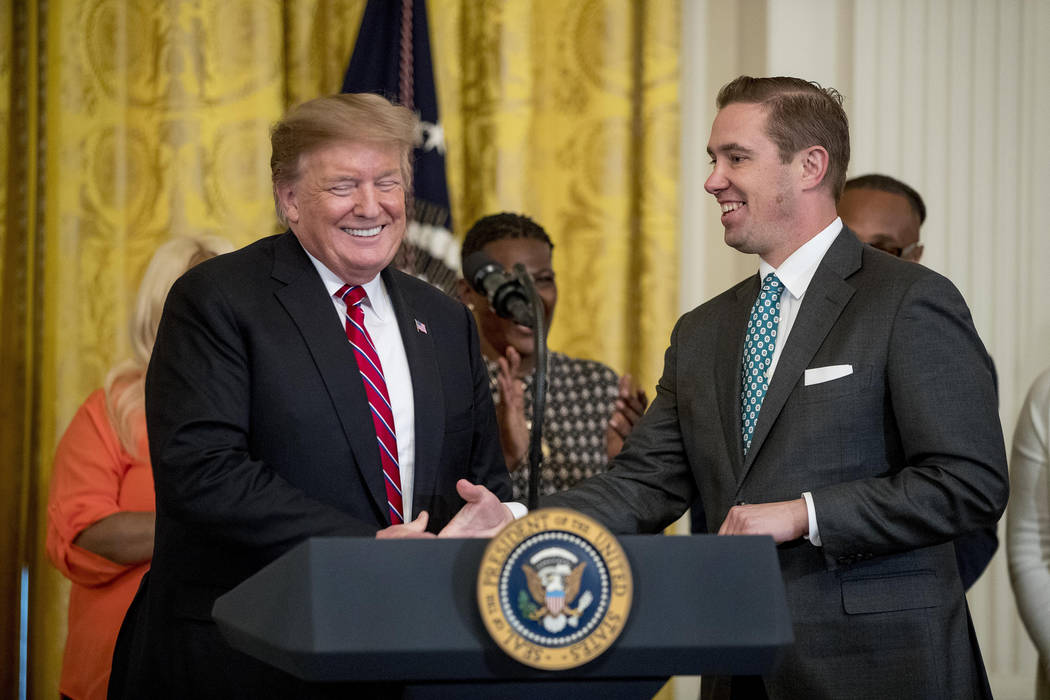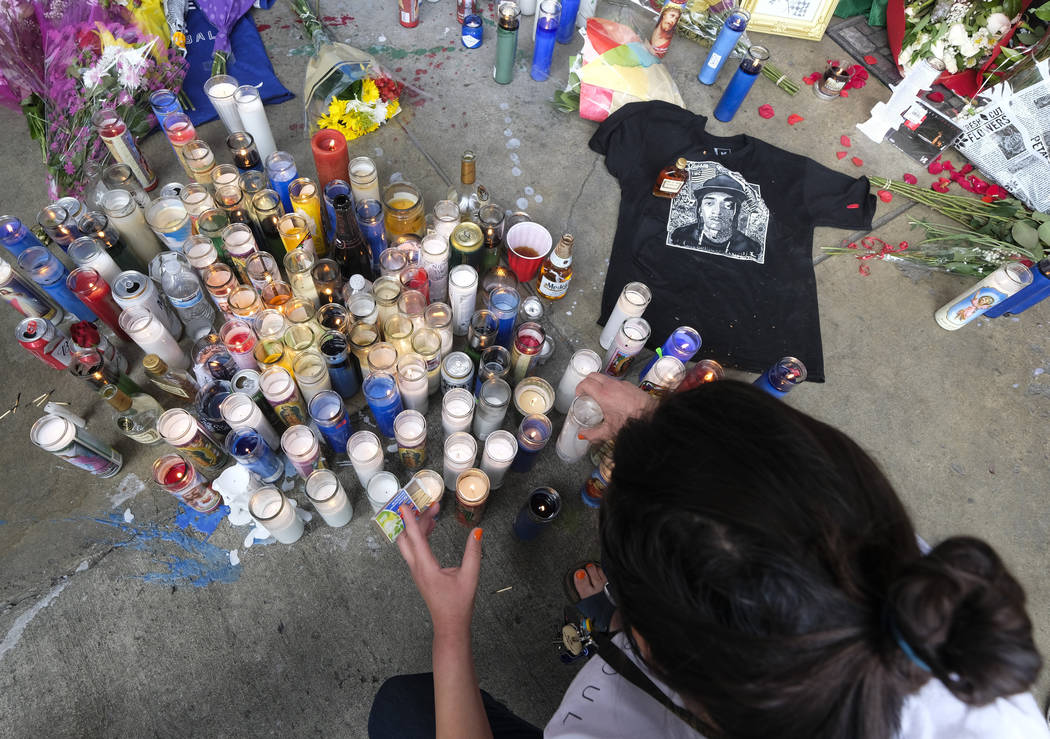Trump celebrates First Step Act for prison, sentencing reform
WASHINGTON — President Donald Trump celebrated his December signing of the First Step Act on Monday evening in the East Room, where ex-offenders thanked God and the president for their early release from federal prisons.
In a room with some 250 people, Trump touted an achievement that had been sought by criminal justice reformers for decades but was eclipsed when the partial government shutdown commenced hours later.
“Bipartisan,” Trump proclaimed as he hit the podium, standing in front of five former inmates freed by the First Step Act, which coupled prison reform and sentencing reform and is expected to lead to the release of some 4,000 federal inmates.
Attorney General William Barr sat in the front row with Cabinet members including Energy Secretary Rick Perry, who as governor of Texas was an early champion of criminal justice reform.
Trump saluted his son-in-law and senior aide Jared Kushner, who worked with Democrats and Republicans to push through a robust revamping of the federal sentencing system. This is a personal issue for Kushner, whose father, Charles, a real estate mogul, was sentenced to two years in prison after pleading guilty to tax evasion, witness tampering and making illegal campaign donations in 2005.
As Trump saluted Kushner, Van Jones, a CNN commentator and former adviser to President Barack Obama, clapped enthusiastically.
Near Jones sat Alice Marie Johnson, the only federal drug offender to receive a sentence commutation from Trump, who looked on with approval. After Trump invited Johnson to the podium, she thanked “my Lord and savior, Jesus Christ,” then “Donald John Trump.”
“Somehow when you see a face, when you see another human being, like me, who had been separated from their families almost 22 years, that changes things, that changes hearts,” said Johnson, an African-American grandmother who had been serving a sentence of life without parole when Trump commuted her sentence last year after he met with Kim Kardashian.
Shon Hopwood, a felon who now teaches law at Georgetown University, said, “There is more hope in the federal system than ever before.”
Jon Ponder, a former Nevada bank robber who founded Hope for Prisoners in Las Vegas and came to the White House for the event, agreed. Because of the measure’s passage, many inmates now believe, Ponder said, “There is a possibility of them one day coming home.”
Trump used the event to extol employers to hire offenders who had served their time in prison and offered special thanks to Walmart. The retailer hired Catherine Toney, the first female offender freed under a First Step Act that made crack cocaine sentence reductions retroactive, after Kushner contacted Walmart on her behalf.
Trump told the group that Washington can achieve “amazing breakthroughs when we put politics aside and put the interests of all Americans first.”
While Trump recognized Republican governors and members of Congress in the East Room, Sen. Dick Durbin, D-Ill., a longtime advocate for sentencing reform, stood in the foyer outside the East Room.
Believing in redemption also could turn out to be good politics in 2020. In January, as many as 1.2 million ex-felons became eligible to register to vote in Florida, a state Trump won by a thin margin in 2016.
Former inmate Gregory Allen injected politics.
“Two months ago, I was in a prison cell. And I’m in the White House,” he said to laughter. “That’s going to tell you to make America great again.”
Contact Debra J. Saunders at dsaunders@reviewjournal.com or 202-662-7391. Follow @DebraJSaunders on Twitter.
























